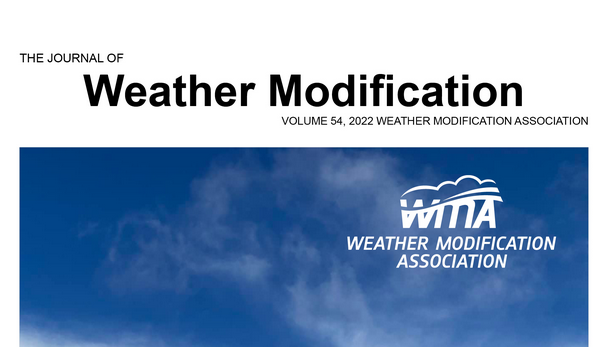A book review: ‘The Sorcerer’s Apprentices’
Prof. Alexandra Henrion Caude, PhD is well-known to most of our readers for her scientific work beyond the accelerated turmoil of the past three years. She is committed to finding simple, low cost and ethical medical solutions through her research in genetics. Prof. Henrion Caude has been openly critical of the failure of the health system recognizing early on the discrepancies between the science that she has always known and the narrative of the authorities from the political decisions of lock downs to mRNA, to early treatment medicament. Soon she became one of the voices of reason, in France and in Europe, inspiring and supporting many groups and individuals speaking up against the false narratives. She is on the advisory board of Children’s Health Defense Europe, and her contributions to our events in Brussels: A Call to Europe: The Future of Our Children is at Stake and at the recent conference in Malmo: The Importance of Debate to Establish Future Directions for Science and Medicine stay with us as signposts to future solutions. Prof. Henrion Caude recently published a book, which became a great success in France, titled “The sorcerer’s apprentices” that we now bring the review of by Elin Ekeberg, while hoping to see English and other language translations available soon. Typical of her humble being with absolute integrity: she is offering the loyalties of the book to support the “suspended French workers”. (Ed.)

Doctor in genetics, Alexandra Henrion Caude, is a French-British researcher. For twenty-five years, she has studied how the environment alters our genes, particularly RNA, in childhood diseases. Winner of the prestigious Eisenhower Fellowship Award in the United States in 2013, she led several genetics research teams at Trousseau Hospital and then at Necker as a research director at Inserm (Institut national de la Santé et de la recherche médicale – National institute of health and medical research in France). She discovered the involvement of RNA in various genetic diseases of children and revealed the existence of MitomiR RNAs, which serve fundamental regulations of the cell.
During the covid crisis, she was vocal in expressing her concern for several of the counter measures put in place by the French government and around the world. She warned against the invasive PCR tests as well as treating healthy people as if they were sick through mask and vaccination mandates. This earned her some severe criticism from French media as well as censorship on social network channels.
In March 2023, after three years of censorship and media shaming, her book “The sorcerer’s apprentices” is published and turns out to be a terrific success. The sales are through the roof and the queues for her book signing events are never ending. People flock to see her and to show their gratitude.
About the book, her editor, has this to say:
“Alexandra Henrion Caude’s book provides readers with a critical analysis and position on messenger RNA vaccines intended to protect against Covid. In some respects, this analysis is in opposition to the position of the “Scientific Council” that has inspired public health policy and feeds into the ongoing debate on the risks and side effects of certain vaccines, which we consider important. In any case, this book should not be considered as an incitement to refuse vaccination, but as a contribution to the general reflection on this subject, which is a fundamental issue of public health.”
The author herself boldly invites her readers:
“I am not a conspiracy theorist but a geneticist, one of the most renowned according to some. In this book, I will tell you what messenger RNA is, the one that is used in the Covid-19 vaccines. Because you have the right to know. Are you ready?”
On April 18th, she is invited to the European Parliament by members of the Covid commission to present her book. There she expresses the sincere hope that it will encourage scientific discussion and a better understanding of the issue at hand. Hear her message to doctors in this short video:
The book “The Sorcerer’s apprentices” holds 13 pages of references where you can go straight to the source of each and every citation or information given in the book. This makes it immensely interesting for those who would like to expand their knowledge in the fascinating domaine of RNA and mRNA.
The book is made up of 5 main chapters:
- Chapter 1 – A messenger RNA vaccine that keeps its promises… but not all!
- Chapter 2 – RNA, what is it?
- Chapter 3 – RNA, a brilliant molecule
- Chapter 4 – mRNA, a molecule with many unknowns
- Chapter 5 – Big Pharma, savior of Mankind
The first chapter takes us through the pandemic starting in 2020, the fear, the overwhelming media coverage, and the unwavering political support for the upcoming vaccines. The question of whether the vaccines have kept their ever so lofty promises is raised by the author: Did the vaccine stop the epidemic? Did it protect you against catching Covid-19? Did it protect you from catching it a second time? Did it prevent you from infecting others? Did it prevent you from dying of Covid-19? The answer to all these questions is “No” which Alexandra goes on to demonstrate, citing studies and observations made these three previous years. She also goes through the worrying studies that started surfacing after the vaccines were deployed as well as the signals picked up in various pharmacovigilance systems around the world. The chapter ends with the most recent policy changes in several countries, such as Denmark who no longer recommends the vaccine for people under 50 years of age, Sweden who does no longer recommend it for those younger than 18 and Great Britain who no longer recommends the vaccine for kids 12-15 years of age nor younger.
In chapter two, “RNA, what is it”, Alexandra Henrion Caude explains that RNA can be so many things and is a multifaceted concept, a molecule which together with DNA and proteins literally make us who we are. They are the building blocks of our bodies and we inherit them from the generations before us, our parents, grandparents and so on. She does a great job of explaining the complex role of RNA and introduces us to her own discovery, the MitomiR, microRNAs which ensure the cell’s link with our mitochondria. With humility she reminds us that the RNA’s numerous capacities, modifications and functions force us to admit that we are still very far from knowing everything about it. Major unknowns remain and should encourage us to tread carefully.
Chapter three really allows us to get to know Alexandra Henrion Caude as the accomplished scientist that she truly is. She takes us on a journey through the marvels of this multifaceted molecule and the amazing possibilities it opens up in non-invasive diagnostics, in medical treatments not to mention the epigenetic implications it holds. It’s a fascinating read and her enthusiasm is palpable on every page.
In chapter four of her book, she dives into Messenger RNA. Messenger RNA is both the “message” and the “messenger” she says. It is created and “matured” inside our cells and once ready to leave the cell, it holds the recipe for a specific type of action in the body. It can have three different functions: storage, degradation or translation into protein and this according to what the body needs at that precise moment. It doesn’t just make one protein as it was previously believed, it can make several different proteins with various sizes and roles to play, for example, tiny proteins that are called micro peptides. Micro peptides have the ability to repair DNA, which is amazing, but they can also reactivate viruses, which is a lot riskier. She goes through the history of medical treatments based on mRNA and looks at several therapies that have been more or less successful and have had some unexpected outcomes. An impressive number of clinical trials have taken place over the last 20 years with mRNA, but none of them have gone past phase 2. She takes us all the way up to 2020 and the Covid-19 vaccines. It becomes obvious that the incredibly rapid development of the vaccines was only possible when the different countries relaxed their regulations and fast tracked everything from phase one into phase three in a heartbeat. An important part of chapter four is spent explaining the mRNA technology of the vaccines, the coding for the Spike protein, the numerous unknowns when it comes to transporting and keeping the mRNA in the vaccine vials, the sudden changes made to the vaccines’ expiration date, etc. She also discusses the duration, trajectory and excretion of mRNA in our bodies after it is injected. Also here, multiple unknowns remain, and we are far from having all the answers even if some interesting studies have come out on these topics and are discussed in this chapter. She brings up the risks of genotoxicity and the possibility of durable changes to our DNA which cannot be excluded.
In the fifth and last chapter of her book, Alexandra Henrion Caude, raises an important issue: the mindboggling profits that have been made by the vaccine manufacturers during this crisis. The staggering price of the vaccines which have been raised even further as sales dropped. She revisits some historical scandals of the pharmaceutical industry like Thalidomide, Oxy-Contin, Vioxx, Levothyrox, etc. as a reminder that it often takes time, sometimes as much as 5- or 10-years years for pharmaceutical companies to finally acknowledge the danger signals from pharmacovigilance systems and pull their products. During those years, many lives can be lost or ruined and there is certainly work to be done in this area to avoid future human tragedies. Profit should not count more than human lives. We need a more prudent approach.
In the last pages of her book, she speaks directly to the parents reminding them to adopt this prudent approach for their children when they consider the Covid-19 vaccine and she quotes Kathrin Janssen, Pfizer’s director for vaccine research and development, who admits on November 11th 2022, in Nature magazine: “We were flying the airplane while we were still building it.” And she asks: “With all that you now know about RNA, will you allow your children to be vaccinated?”
And as for yourself, will you keep up your vaccine “subscription”?
….
Suggest a correction






